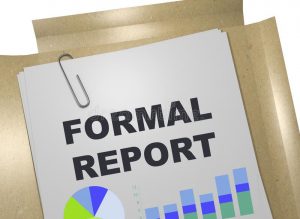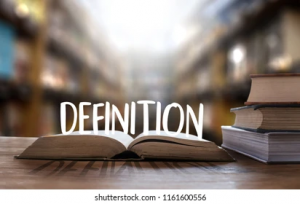This is the last thing I will write for ENGL 301. Although this is not a formal introduction for a writing assignment, I want to share my emotions right now regarding this course. Coming into ENGL 301, I was a little overconfident in my own abilities. Having already obtained a Bachelor’s degree from UBC, which involved many writing courses, I thought I would not be learning too much. Now that we are at the end of the semester, I look back on my initial assumptions about this course and laugh, because I could not have been more wrong. This course has challenged me as a writer, pushed me outside of my comfort zone, and taught me so much. It is a bittersweet feeling to write this final post, as I am proud to finish this course, yet I know that I will miss it. It has been a very enjoyable experience, and I know I will carry what I have learned with me for the rest of time at UBC and into my future career. With that being said, now it is time for my final blog post: the final self assessment reflection.

Strengths in my learning and assignments
One of my strengths as a writer is my ability to provide constructive criticism for my peers. I have a keen eye for detail, which is a valuable asset in providing peer-reviews. This strength benefited me greatly throughout the course of ENGL 301. After Unit 1, a lot of the work involved peer-reviews. My partners let me know that they always found my reviews to be extremely helpful and insightful, and it made me happy to know I was aiding my colleagues. Conducting peer reviews also allowed me to pick out the strengths and weaknesses in other’s writing, and apply it to my own writing. Avoiding mistakes I would see, and emulating the aspects that made the writing of my peers excellent improved my technical writing abilities. Another one of my strengths is my ability to communicate complicated ideas in lay-terms. I found this especially benefited me on the definitions assignment. In my first degree, a lot of the science courses I took involved breaking down complex topics into a format that was readable for general audiences. This in turn greatly aided me throughout this course.
Weaknesses in my learning and assignments
Although I have learned a lot and greatly benefitted from ENGL 301, I am still aware of some strengths and weaknesses in my learning and assignments. Starting with my learning, one issue I have is not creating and sticking to a firm schedule. This especially created a disadvantage for me when writing the formal proposal and doing the research for it. I found myself to be very overwhelmed with the workload. However one aspect of the progress report was creating a writing schedule. This allowed me to map out my work and break it down into smaller portions. This taught me just how important creating a schedule and sticking to it is for learning. Being inspired by the benefit the writing schedule provided me, I created an exam studying schedule and it has helped me tremendously for the current exam season.
In terms of my assignment, one of the weaknesses I noticed was missing little styling and formatting details. For example, on some of the assignments that involved writing a memorandum, I would sign off. Through the instructor feedback, and being given the chance to revise my assignments, I was able to catch these mistakes. This has taught me the value of reading assignment guidelines more than once, and triple-checking my work. Finally, a last weakness I want to highlight is my tendency to use more words than necessary when writing. ENGL 301 has helped me a lot with this weakness, but I still have a lot of room to improve. The creation of the Web Folio allowed me to revise my old assignments, and cut down on unnecessary words and sentences.
Translating my skills and strengths for future career and educational goals
In the future, I hope to enter the technology field. Initially, I want to work as a software developer, and my ultimate goal is to enter the field of neuroengineering. To be in such a field, one must have an amazing work ethic, great organisational skills, and exceptional technical communication skills. Luckily for me, ENGL 301 has allowed me to work on all these aspects. ENGL 301 has taught me a lot about networking and creating resumes. It allowed me to optimise my LinkedIn profile, which will help me expand my professional network and find mentors who are already in the field of neuroengineering. Moreover, my emails have become more professional and concise as a result of this course. Already, I have noticed how much more receptive people are to requests I send over email when I write with a “YOU attitude” and apply the lessons learned in ENGL 301. I know that I will keep a copy of the textbook handy at all times to refer to all the lessons learned through the course of this semester.
My passion, drive for excellence, and hard-working attitude will allow me to succeed in the future. ENGL 301 has aided me develop all these, improved my writing skills, and taught me about professional networking. I have learned a lot, and I know I will carry these lessons with me throughout my life. Thank you to Dr. Paterson for all that she has taught the students over the course of this semester, and thank you to my writing team for being there for me and helping me grow as a writer. I am excited for the future.




